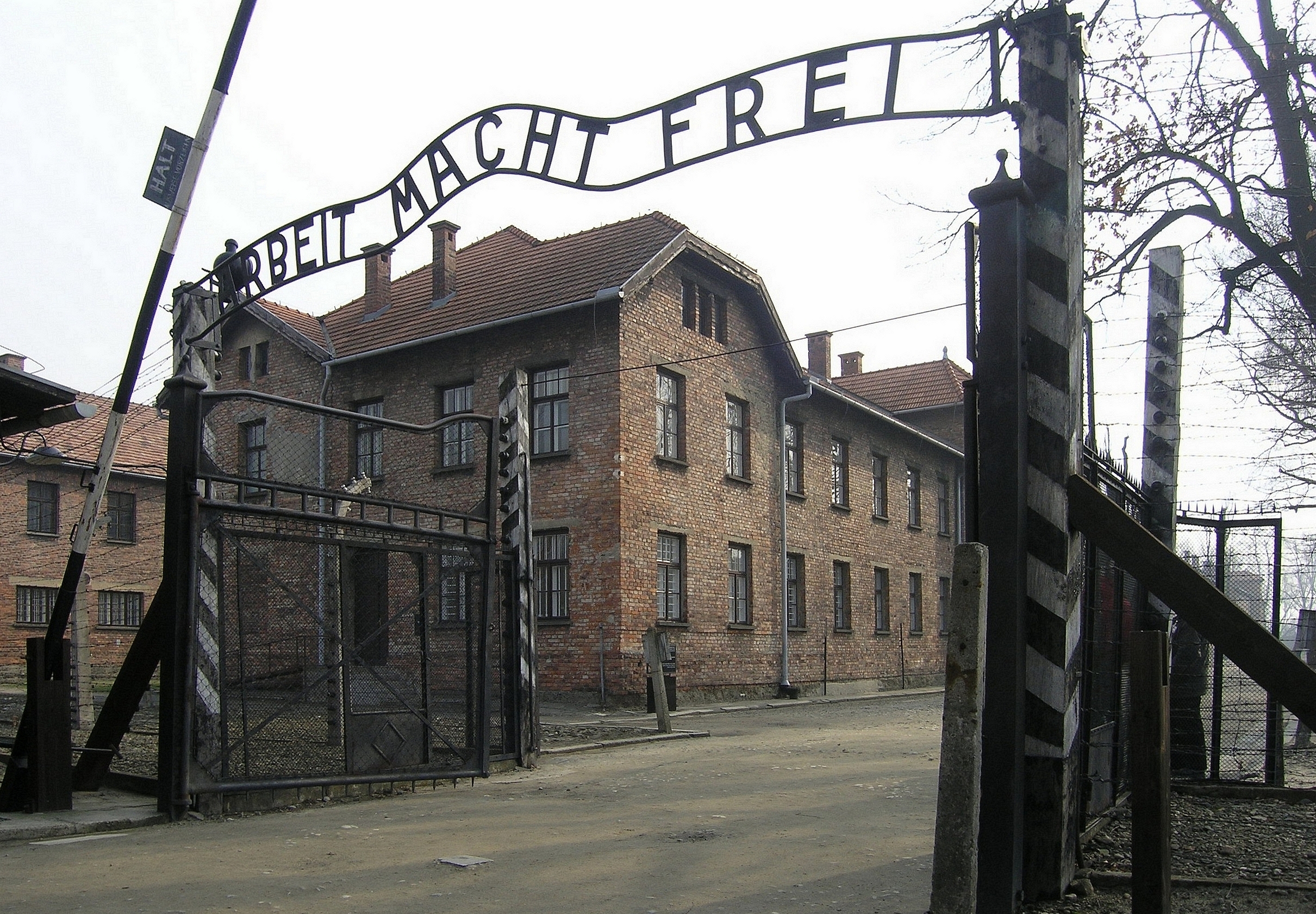As soon as you pass the entry blocks at the Auschwitz concentration camp and assemble for your guide to brief the group, you’ll notice written arching over the main iron gate: Arbeit Macht Frei. It loosely translates into English as “Work sets you free.” A cynical lie that the Nazis propagated, as they starved, tortured, maimed and gave horrible death to 1.1 million people that were sent here during Nazi Germany’s occupation of Poland.

There are many stories, anecdotes and examples of true grit and character that come out of these fenced barbwires. One of them, however, is lesser known.
Story of the “B,” that’s upside-down
A careful gaze at the very gate with the cynical lie, and you can notice the letter “B” in the word Arbeit. It looks upside-down!

Photo: Wikimedia Commons
This may not look apparent to an unsuspecting eye at first, but someone with a basic knowledge of typography can confirm that it’s indeed inverted.
According to the International Auschwitz Committee, “…the prisoners placed their hidden message in the word “Arbeit”: they turned the letter “B” upside down. They were enraged by the endless fear, the everyday humiliations, the beatings, the hatred and the murder that they were forced to witness. They created a mark of their courage, their will to overcome the fear, to survive and later to tell the world about what happened in Auschwitz.“
Auschwitz – A lesson in humanity

A walking tour through these relics of not so distant past, one is reminded of the despicable atrocities committed by one group of humans on another. Similarly, there are stories of the personal grit of some in the face of certain death, of innumerable selfless sacrifices and the sheer will of human survival.



Sooner or later in life everyone discovers that perfect happiness is unrealizable, but there are few who pause to consider the antithesis: that perfect unhappiness is equally unattainable. The obstacles preventing the realization of both these extreme states are of the same nature: they derive from our human condition which is opposed to everything infinite.
Primo Levi, Survival in Auschwitz



Executions took place in a courtyard between Block 10 and Block 11. Block 11 was known as the “Block of Death” by the prisoners.

The Auschwitz II Birkenau Concentration Camp
A short 30-minute ride from the main Auschwitz I camp brings you to the biggest of the Auschwitz camps, and one of the largest killing fields of World War II.

Trains filled with victims from throughout occupied Europe arrived at the camp almost every day between 1942 and the summer of 1944.
The prisoners were forced to live in the barracks as they were building them; in addition to working, they faced long roll calls at night. As a result, most prisoners in the men’s camp in the early months died of hypothermia, starvation or exhaustion within a few weeks.

So, let us be alert – alert in a twofold sense.
― Victor E Frankl, Man’s Search for Meaning
Since Auschwitz, we know what man is capable of.
And since Hiroshima, we know what is at stake.

Leave a Reply